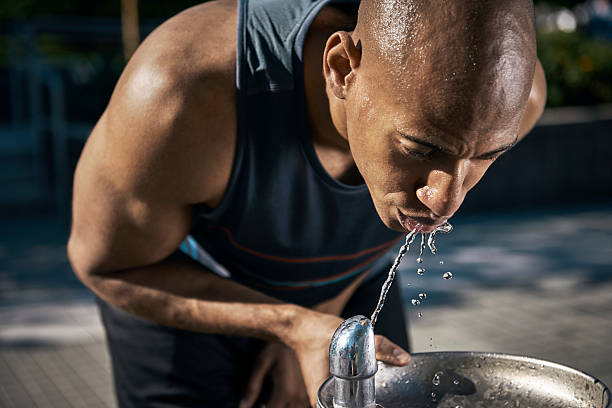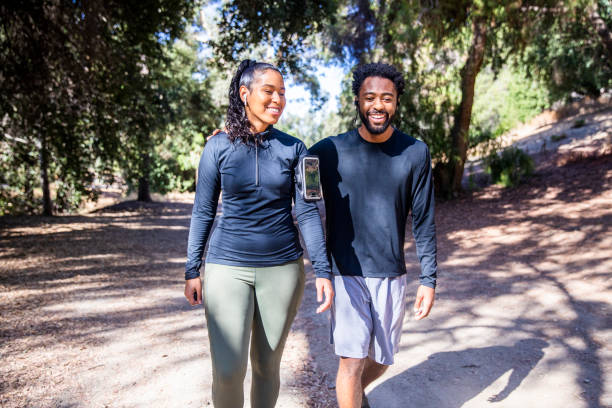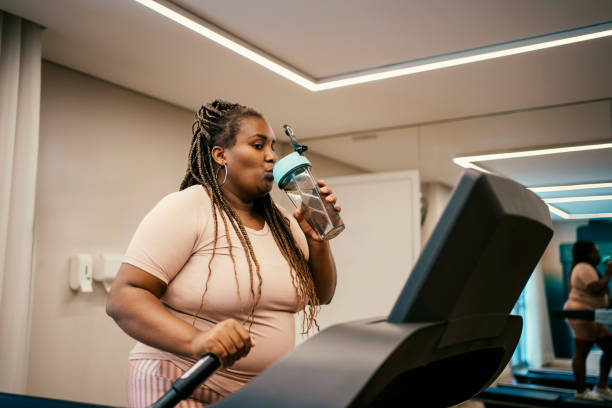(BlackFitness101.com) In the world of fitness and athletic performance, proper nutrition is just as important as the workouts themselves. What you eat before and after exercise can significantly influence your energy levels, endurance, muscle recovery, and overall results. Whether you’re a seasoned athlete, a gym enthusiast, or someone just starting their fitness journey, understanding the importance of pre- and post-workout nutrition is key to optimizing your efforts and achieving your goals.
Understanding the Role of Nutrition in Workouts
Before diving into specific foods, it’s crucial to understand the role that nutrition plays in your workouts. The food you consume provides the fuel your body needs to perform at its best and recover efficiently afterward. Different nutrients serve different functions during your exercise routine:
- Carbohydrates are your body’s primary source of energy. During exercise, especially high-intensity workouts, your body breaks down glycogen (stored carbohydrates) in your muscles to fuel your activity.
- Proteins are essential for muscle repair and growth. After a workout, your muscles experience tiny tears, which protein helps to repair, leading to stronger and larger muscle fibers.
- Fats provide a concentrated source of energy, especially for longer, lower-intensity workouts. Healthy fats also support joint health and hormone production.
- Vitamins and Minerals play a critical role in energy production, muscle contraction, and recovery. For example, electrolytes like sodium, potassium, and magnesium help maintain fluid balance and prevent cramping.
- Hydration is vital for optimal performance and recovery. Dehydration can lead to decreased strength, endurance, and even cognitive function.
Pre-Workout Nutrition: Fueling Your Body for Performance
The goal of pre-workout nutrition is to provide your body with the energy it needs to perform at its best. The right foods can enhance your endurance, strength, and overall performance. Here are some key considerations for pre-workout nutrition:
Timing of Pre-Workout Meals
Ideally, you should consume your pre-workout meal 2-3 hours before exercising. This allows enough time for digestion and absorption of nutrients, ensuring that your body has a steady supply of energy during your workout. However, if you’re short on time, a smaller, easily digestible snack 30-60 minutes before exercise can also be effective.
Macronutrient Breakdown
- Carbohydrates: Carbs are your body’s preferred energy source, especially for high-intensity workouts. Consuming carbs before exercise helps top off your glycogen stores, giving you the energy you need to power through your workout. Aim for complex carbohydrates that provide sustained energy, such as whole grains, fruits, and vegetables.
- Proteins: While carbs are the primary focus of pre-workout nutrition, including a moderate amount of protein can help reduce muscle breakdown during exercise. This is particularly important if you’re engaging in strength training or other muscle-intensive activities.
- Fats: While fats are a slower-burning fuel source, they can be beneficial for longer, lower-intensity workouts. However, it’s best to avoid large amounts of fat close to your workout, as they can slow down digestion and make you feel sluggish.
Best Pre-Workout Foods
Here are some examples of balanced pre-workout meals and snacks that provide a mix of carbohydrates, protein, and fats:
- Oatmeal with Banana and Almond Butter: Oatmeal is a great source of complex carbs, while the banana provides quick-digesting sugars for immediate energy. Almond butter adds a healthy dose of fats and protein.
- Grilled Chicken with Sweet Potato: This meal provides lean protein and complex carbs, making it ideal for those with a few hours before their workout.
- Greek Yogurt with Berries and Honey: Greek yogurt is high in protein, and the berries provide antioxidants and quick-digesting carbs. A drizzle of honey can give you an extra energy boost.
- Whole Grain Toast with Avocado and Egg: This is a balanced option that includes carbs, healthy fats, and protein, making it a great choice if you have a couple of hours before exercising.
- Fruit Smoothie with Protein Powder: A smoothie made with fruits like berries or bananas, along with a scoop of protein powder and some spinach, is easy to digest and provides a quick energy source.
Post-Workout Nutrition: Recovering and Rebuilding
After your workout, your body’s glycogen stores are depleted, and your muscles are in a state of repair and recovery. Post-workout nutrition focuses on replenishing energy stores, repairing muscle tissue, and reducing inflammation. Consuming the right foods after exercise can help speed up recovery, reduce muscle soreness, and prepare you for your next workout.
Timing of Post-Workout Meals
It’s generally recommended to consume your post-workout meal within 30 minutes to 2 hours after exercising. This “anabolic window” is when your muscles are most receptive to nutrients, making it the ideal time to refuel.
Macronutrient Breakdown
- Carbohydrates: After a workout, replenishing your glycogen stores is crucial, especially if you’ve engaged in endurance activities. Simple carbs, which are quickly absorbed by the body, can be beneficial in this context.
- Proteins: Post-workout protein is essential for muscle repair and growth. Aim for high-quality protein sources that provide all the essential amino acids needed for muscle synthesis.
- Fats: While fats slow down digestion, they can still be part of your post-workout meal. Healthy fats can help reduce inflammation and support overall recovery.
Best Post-Workout Foods
Here are some examples of balanced post-workout meals and snacks:
- Grilled Salmon with Quinoa and Steamed Vegetables: Salmon is rich in omega-3 fatty acids, which help reduce inflammation. Quinoa provides complex carbs and complete protein, while vegetables offer essential vitamins and minerals.
- Protein Shake with Banana and Peanut Butter: A protein shake made with whey or plant-based protein powder, a banana for quick carbs, and peanut butter for healthy fats is an easy and effective post-workout option.
- Egg White Omelette with Spinach and Whole Grain Toast: Egg whites are a lean protein source, and spinach is packed with nutrients. Whole grain toast adds the necessary carbs for glycogen replenishment.
- Chicken Breast with Brown Rice and Broccoli: This classic combination provides lean protein, complex carbs, and fiber, making it ideal for muscle recovery.
- Cottage Cheese with Pineapple and Almonds: Cottage cheese is high in casein protein, which is slowly digested and provides a steady supply of amino acids. Pineapple contains bromelain, an enzyme that can help reduce muscle soreness, while almonds add healthy fats.
Special Considerations: Tailoring Your Nutrition to Your Workout
While the general principles of pre- and post-workout nutrition apply to most people, it’s important to tailor your approach based on the type of workout you’re doing, your individual goals, and any specific dietary needs or restrictions you may have.
Strength Training
If your workout focuses on strength training, prioritize protein intake both before and after your session. This helps to minimize muscle breakdown and promote muscle growth. Consider adding a protein-rich snack, such as a protein bar or a shake, 30 minutes before your workout. Afterward, aim for a meal that combines protein and carbs, like a grilled chicken sandwich on whole-grain bread.
Endurance Training
For endurance workouts like running, cycling, or swimming, carbohydrates become even more important. Pre-workout, focus on consuming easily digestible carbs to fuel your performance, such as a banana or a piece of toast with jam. Post-workout, replenish your glycogen stores with a combination of simple and complex carbs, along with some protein to aid in muscle recovery. A bowl of oatmeal with a scoop of protein powder and some fruit can be an excellent post-endurance workout meal.
High-Intensity Interval Training (HIIT)
HIIT workouts are intense and require a good balance of carbs and protein both before and after the session. Before your workout, try a small meal or snack that combines carbs and protein, such as Greek yogurt with honey or a smoothie with protein powder and fruit. After HIIT, focus on replenishing your energy and repairing your muscles with a meal that includes both carbs and protein. A turkey and avocado wrap on whole-grain bread can be a great option.
Yoga and Pilates
For lower-intensity activities like yoga or Pilates, your nutrition needs may differ slightly. While you still need energy and recovery nutrients, the focus can be more on light, easily digestible foods. Pre-workout, try a small snack like a handful of nuts or a piece of fruit. After your session, consider a light meal that includes some protein and healthy fats, like a smoothie with almond milk, spinach, and protein powder.
Hydration: The Unsung Hero of Workout Nutrition
Proper hydration is often overlooked, but it’s a critical component of both pre- and post-workout nutrition. Staying hydrated helps regulate your body temperature, lubricate your joints, and transport nutrients throughout your body. Dehydration can lead to decreased performance, increased heart rate, and a higher risk of injury.
Pre-Workout Hydration
Start hydrating well before your workout. Aim to drink at least 16-20 ounces of water 2-3 hours before exercise. If you’re working out in hot or humid conditions, or if you sweat heavily, consider adding electrolytes to your water to help maintain fluid balance.
During Workout Hydration
During your workout, aim to drink 7-10 ounces of water every 10-20 minutes. If your workout lasts longer than an hour, or if it’s particularly intense, consider using a sports drink that contains electrolytes and carbohydrates to help maintain your energy levels.
Post-Workout Hydration
After your workout, it’s important to replace the fluids lost through sweat. A good rule of thumb is to drink 16-24 ounces of water for every pound of body weight lost during exercise. Again, if you’ve had a particularly intense workout or you’re in a hot environment, consider adding electrolytes to your post-workout hydration plan.
Supplements: Enhancing Your Workout Nutrition
While whole foods should always be your primary source of nutrients, certain supplements can be beneficial for enhancing workout performance and recovery. Here are some of the most popular supplements used in pre- and post-workout nutrition:
- Protein Powder: Whether whey, casein, or plant-based, protein powder is a convenient way to increase your protein intake, especially post-workout. It helps repair and build muscle tissue, making it a staple for many athletes.
- BCAAs (Branched-Chain Amino Acids): BCAAs can help reduce muscle soreness and promote muscle recovery after intense workouts. They are often taken both pre- and post-workout to support muscle maintenance.
- Creatine: Creatine is one of the most researched supplements and is known for improving strength, power, and muscle mass. It’s typically taken post-workout, but some people also take it pre-workout.
- Electrolytes: As mentioned earlier, electrolytes are crucial for maintaining fluid balance and preventing cramps during long or intense workouts. They can be taken before, during, or after exercise, depending on your needs.
- Caffeine: Caffeine is a popular pre-workout supplement because it can enhance focus, energy, and endurance. However, it’s important to use it in moderation and be mindful of its effects on your sleep patterns.
- Beta-Alanine: This amino acid can help buffer lactic acid in your muscles, potentially delaying fatigue during high-intensity workouts. It’s often included in pre-workout formulas.
Common Mistakes in Workout Nutrition
Even with the best intentions, it’s easy to make mistakes with your pre- and post-workout nutrition. Here are some common pitfalls to avoid:
- Skipping Meals: Skipping your pre- or post-workout meal can lead to low energy levels, poor performance, and slower recovery. Make sure to plan your meals and snacks around your workouts to fuel your body properly.
- Overeating Before a Workout: Eating a large meal too close to your workout can lead to digestive discomfort and sluggishness. Aim to eat a balanced meal 2-3 hours before exercise, or a smaller snack if you’re short on time.
- Not Eating Enough Carbs: Carbohydrates are essential for energy, especially during high-intensity workouts. Don’t skimp on carbs in your pre-workout meal, as this can lead to fatigue and decreased performance.
- Ignoring Hydration: Dehydration can significantly impair your workout performance and recovery. Make sure to drink enough water before, during, and after your workouts, and consider adding electrolytes if needed.
- Relying Too Much on Supplements: While supplements can be beneficial, they should not replace whole foods in your diet. Focus on eating a balanced diet rich in nutrients, and use supplements to fill in any gaps.
Making the Most of Your Workout Nutrition
Proper pre- and post-workout nutrition is essential for optimizing your performance, recovery, and overall fitness results. By focusing on balanced meals that provide the right mix of carbohydrates, protein, and fats, you can fuel your body for success and ensure that you’re getting the most out of your workouts.
Remember, nutrition is highly individual, and what works for one person may not work for another. It may take some experimentation to find the best pre- and post-workout foods that work for your body and your fitness goals. But with the right approach, you can enhance your workouts, recover more effectively, and ultimately achieve the results you’re striving for.
So, whether you’re hitting the gym for strength training, going for a long run, or practicing yoga, make sure you’re fueling your body with the right nutrients before and after your workouts. Your body will thank you, and you’ll be well on your way to reaching your fitness goals.
Staff Writer; Leroy Smith
Questions? Feel free to email me at; LSmith@BlackFitness101.com.













Leave a Reply